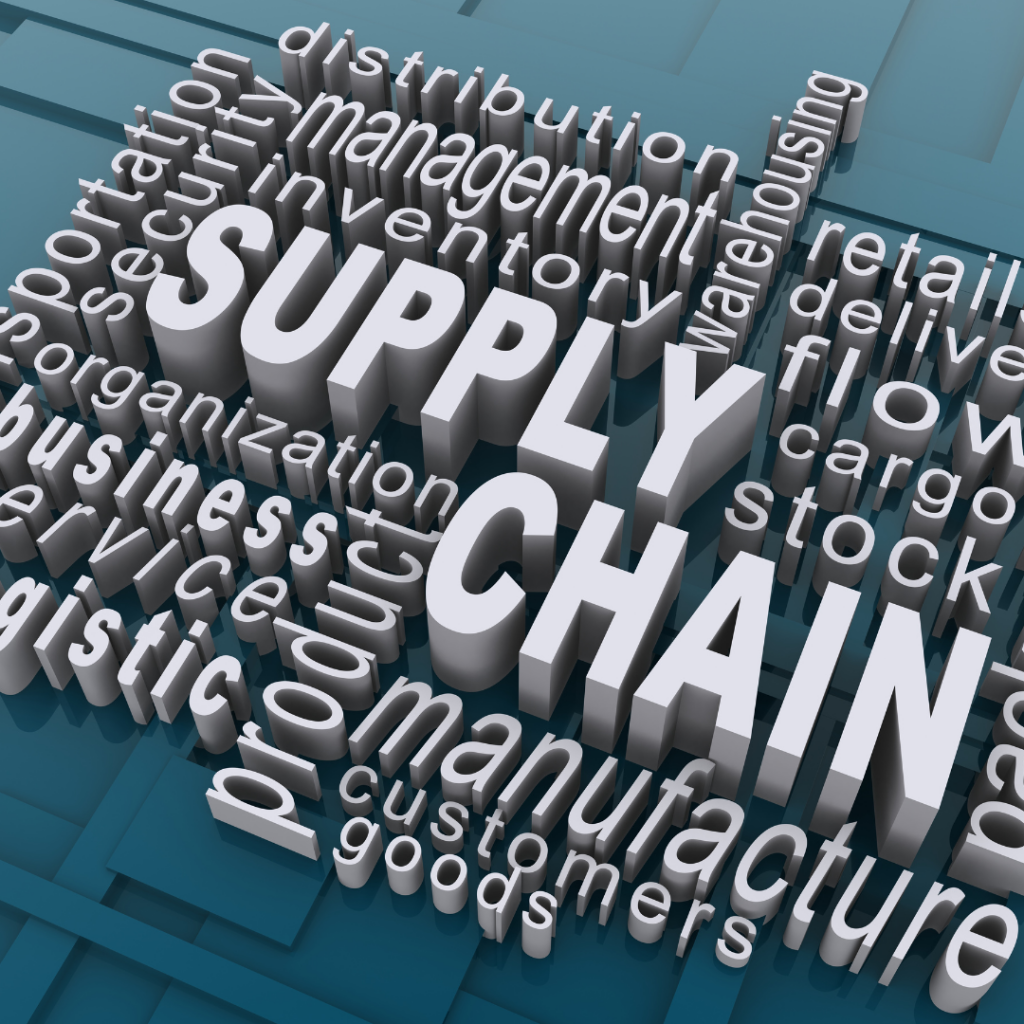What is Supply Chain?
March 4th, 2024

In today’s interconnected global economy, understanding the supply chain is crucial for businesses and individuals alike. From raw materials sourcing to final product delivery, the supply chain encompasses the entire process of bringing goods or services to consumers. In this article, you’ll learn more about the supply chain, explore how inflation affects it, and learn whether pursuing a career in supply chain management is a wise choice.
What is Supply Chain?
At its core, a supply chain is a network of entities, activities, information, and resources involved in the creation and distribution of products or services. It encompasses everything from procurement and production to distribution and logistics. In simpler terms, it’s the journey a product takes from its conception to its consumption.
The supply chain begins with the acquisition of raw materials, and then moves through various stages of production before proceding through warehousing and inventory management, and ultimately ends with the delivery of finished goods to the end consumer. Each step in the process is interconnected and reliant on the others to ensure efficiency and timely delivery.
What is the Definition of Supply Chain?
The definition of supply chain has evolved over time, reflecting changes in technology, globalization, and consumer demands. Today, it’s widely understood as the coordination of activities involved in the creation and distribution of goods or services, from sourcing raw materials to delivering the final product to customers.
Supply chain management involves planning, implementing, and controlling the flow of materials, information, and finances from suppliers to end consumers. It aims to optimize efficiency, minimize costs, and enhance customer satisfaction throughout the entire process.
How Does Inflation Affect Supply Chain?
Inflation, the general increase in prices of goods and services over time, can have a significant impact on the supply chain. Rising inflation rates can lead to higher production costs, increased transportation expenses, and greater price volatility for raw materials.
One of the primary ways inflation affects the supply chain is through increased costs of production. As the prices of raw materials and labor rise, businesses may need to adjust their pricing strategies or seek alternative suppliers to maintain profitability. Additionally, inflation can impact consumer purchasing power, influencing demand for certain products and services.
Supply chain professionals must continually monitor market conditions, anticipate inflationary pressures, and adapt strategies to mitigate risks. This may involve renegotiating contracts with suppliers, optimizing inventory levels, or exploring alternative sourcing options to minimize the impact of inflation on the overall supply chain.
Is Supply Chain a Good Career?
With the increasing complexity of global trade and logistics, supply chain management has emerged as a dynamic and rewarding career path. As businesses strive to streamline operations, reduce costs, and improve efficiency, the demand for skilled supply chain professionals continues to grow.
A career in supply chain management offers diverse opportunities across various industries, including manufacturing, retail, logistics, and transportation. Professionals in this field play a critical role in optimizing processes, managing risk, and driving innovation throughout the supply chain.
Moreover, advancements in technology, such as artificial intelligence, data analytics, and blockchain, are reshaping the landscape of supply chain management, creating new avenues for growth and specialization. Those with expertise in emerging technologies and a deep understanding of global supply chain dynamics are well-positioned to excel in this rapidly evolving field.
triOS College’s Supply Chain programs equip students with the knowledge and skills they need for a career in a growing and in-demand field in as little as 33 weeks. Students learn the fundamentals of supply chain and logistics, while also learning about purchasing, operations management, and compliance. With online program options, students can also study in a way that suits their lifestyle.
Conclusion
Understanding the supply chain is essential for navigating today’s complex business environment. From its definition and impact of inflation to the opportunities it presents as a career, the supply chain plays a vital role in shaping the global economy. Whether you’re a business owner, aspiring professional, or curious consumer, having insight into the intricacies of the supply chain can provide valuable insights and opportunities for success.
